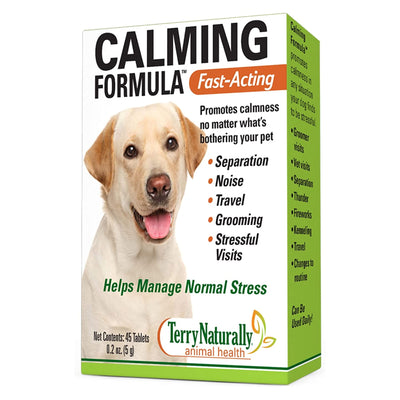Pet Health
Keeping your pet healthy is critical to their longevity of life. This means feeding them and giving them the proper nutrients they need. There are plenty of pet health fads out there, but how do you know what works and what is just a trend? What should you look for in a pet supplement?
Vitamins + Minerals
Vitamin A
Vitamin A is fat soluble and aids in growth, immune health and cell function.
Vitamin B
Vitamin B has multiple types, from B1 to B12. B1, Thiamine, regulates metabolism and energy. B12, Riboflavin, and B3, Niacin, facilitate enzymatic processes. Vitamin B6, Pyridoxine, regulates hormones, the nervous system, immune response and gene activation. It also oversees the production of glucose and red blood cells. Vitamin B5, Pantothenic Acid, assists in energy metabolism. And Folic Acid, which is loosely known as Vitamin B9, synthesizes proteins and metabolizes amino acids.
Vitamin C
Like with humans, our pets need Vitamin C for its powerful antioxidant properties. Vitamin C can reduce the effects of aging, reduce free radicals and inflammation. Animals have the ability to self-synthesize Vitamin C in their livers, but for some supplementation can be beneficial.
Vitamin D
In pets, Vitamin D helps to balance phosphorus and calcium for healthy bones. Vitamin D is important because, without it, development and maintenance of healthy muscles and bones would be impossible.
Vitamin E
Vitamin E is an antioxidant which means it helps to protect cells against damage caused from free radicals. It is also essential to muscle development, circulation and immune health. As they age our pets need more Vitamin E to maintain their immune health and, lack of Vitamin E can lead to heart disease. Growing pets need the most Vitamin E, followed by Senior pets and then Adults.
Vitamin K
This vitamin is critical in forming blood clots. Ever clipped your dog’s toenails and come just a bit too close to the quick? They bleed, yes, but a deficiency in Vitamin K means your house now looks like a murder scene. Not speaking from personal experience whatsoever, nope, totally an example.
Glucosamine + Chondroitin
Like humans, cats and dogs have joints. Also like humans, their joints can become painful as they age with stiffness, depletion of cartilage and arthritis. Glucosamine and Chondroitin are two minerals that strengthen bones and joints, restore hydration to dried cartilage, and ease the pain of stiffness.
Nutrition
Your pet’s nutrition is part of living a healthy life. We can attest as humans that what we eat determines how long we live, how we feel, our activity levels and our health. The same can be said for our pets. A cat or dog’s digestion is different than a humans, but not too far off. There are certain foods that cats and dogs can eat that give them some extra health benefits.
Carrots
Carrots contain Vitamin A, B Vitamins, Vitamin C, Fiber, Magnesium, Manganese and Phosphorus.
Chia
We are constantly told as humans to eat chia. This is because chia seeds have a high fiber content, are packed with protein and antioxidants, and also have valuable omega-3s and calcium. Chia seeds are also highly absorbent. For this reason, they can be used to give your pet extra hydration. Many pets are under hydrated, you can help by soaking chia seeds in water and a little bit of broth for flavor. Add this to their food so they eat it along with their regular meal.
Fish
There are a lot of fish in the sea (not entirely intending a pun but it is February so lets roll with it). But only certain fish contain the necessary omega-3s. Salmon, Mackerel, Anchovies, Sardines and Herring all make the cut. Not only are fish packed with protein, vitamins and minerals, but the omegas reduce skin irritation and leave a soft, shiny coat. They also can have anti-inflammatory effects.
Kale
I can barely convince myself to eat kale but my dog seems to enjoy it. Good thing too because kale is a supercharged leafy green with antioxidants, Vitamin A, Vitamin C, and Vitamin E. It can help your pet detoxify, has anti-inflammatory properties and can even help reduce the occurence of bladder/kidney stones or disease.
Pumpkin
Pumpkin is high in fiber for a healthy digestive tract. It also is low in calories and sodium with Vitamin C, B Vitamins, Calcium, and Potassium.
Sweet Potato
Sweet potatoes are packed with beta-carotene, a precursor to Vitamin A, Vitamin A itself, and Vitamin C. They also contain more antioxidants than blueberries (150% more).




